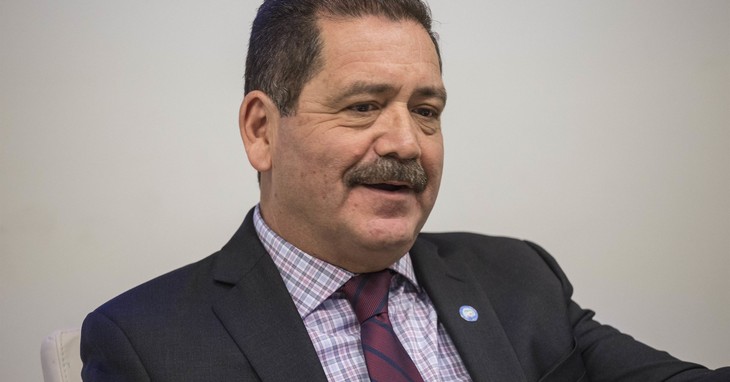For decades, the Better Business Bureau (BBB) has been seen as an organization you can turn to in order to verify legitimate businesses and their reputations. The rise of telemarketing scams and other attempts to defraud people through phone calls, however, had shifted their focus quite a bit, and as a result their website seems more a posting board for rants and complaints than for getting businesses to behave better.
The BBB, in an attempt to combat all the telephone scams, has put out a report that ostensibly focuses on the problem of scammers impersonating legitimate financial services companies. The problem, though, is that they also cleverly use this problem with scammers to argue for a policy that would basically end short-term, small-dollar lending in the US.
Rather than focusing on the problem of the scammers, they have taken it upon themselves to call for a cap of 36 percent on all APRs on all loans across the country. There are a couple of issues with his. From a political perspective, red flags immediately go up when the BBB is advocating the same policies as far-left politicians like Rep. Chuy Garcia, a Democrat from Illinois.

The U.S. government has gone after these types of loans before, and so long as they are around, the government will continue to do so.
But, setting aside that the 36% APR recommendation is deeply flawed and experts including Sen. Pat Toomey say it would lead to huge constriction in credit for people with bad credit ratings that traditional banks and credit unions who offer lower rates for loans just won’t service, the BBB report fails in a few other ways as well. The first issue is that it identifies 117,000 complaints regarding scammers while a mere 2 percent of that number relate to the lenders it targets, appearing more agenda-driven than actually problem-solving.
The BBB also just plain gets facts wrong on this. For example, the BBB report claims that New Mexico allows rates of 175% on debt. This has not been true for the best part of a year now, since the state lowered its APR cap to 36 percent. The BBB is apparently unaware of this, despite presenting itself as a credible “recommender” of best financial services policy.
And second, while it homes in on the problem of aggressive debt collectors, it fails to notice that some of the nastiest debt collection efforts come from… a company that adheres to a 36 percent APR, which sort of undercuts their argument for a 36 percent rate cap (the company is Oportun). Another 36 percent lender, Lending Club, is one cited for being frequently impersonated by scammers (people reading the report might construe that Lending Club doesn’t do enough to stop that).
It, perhaps, should not be very surprising for anyone to discover that the BBB may have lost its edge. Back in 2010, the BBB got busted then for allowing people to pay to get Hamas— yes, that Hamas— accredited with an A- rating. That earned the BBB a severe scolding from then-Attorney General (and now extremely liberal U.S. Senator) Richard Blumental.
To prove the point, a group of Los Angeles business owners paid $425 to the Better Business Bureau and were able to obtain an A minus grade for a non-existent company called Hamas, named after the Middle Eastern terror group.
READ RELATED: Trump Attorneys Spill the Beans on Issues With FBI Raid, Warrant
“Right now, this rating system is really unworthy of consumer trust or confidence,” said Connecticut attorney general Richard Blumenthal in an interview to be broadcast as part of an ABC News investigation airing tonight on 20/20.
In an official demand letter sent to the national headquarters of the Better Business Bureau Thursday, Blumenthal called on the BBB to stop using its grading system, which he said was “potentially harmful and misleading” to consumers.
“The BBB accreditation and the BBB ratings systems is not about generating money,” said BBB national president and CEO Steve Cox. He said the A minus grade for Hamas was given in error. “Plain and simple, we made a mistake,” Cox told ABC News.
Errors seem to abound at the Better Business Bureau. As reported by an anonymous blogger the BBB also awarded an A minus rating to a non-existent sushi restaurant in Santa Ana, California and an A plus to a skinhead, neo-Nazi web site called Stormfront.
Each listing cost $425.
“They ran the credit card and within 12 hours they were an approved, accredited member,” said the anonymous blogger, who runs a site called bbbroundup.com.
Now, the BBB seems to be targeting whole industries, like short-term loans, in an effort to follow a policy agenda, rather than actually good business practices. Yes, while those short-term loans (sometimes referred to as “predatory loans”) do have their bad apples, they also help people with no or bad credit histories get access to money that big banks won’t. But, it’s not like those banks don’t also have their own histories of bad lending policies, right?
This is all a good reminder of why a lot of Americans have come to mistrust institutions and actors we are supposed to trust. The BBB has a pretty bad track record, and now it looks like it’s being converted into an arm for liberal policy advocacy by taking a report about a totally legitimate concern (scammers) and using it to go after people who are not scammers (they just may be engaged in a line of business that isn’t regarded as “nice” by a lot of people). I suppose on the plus side, they did not roll in giving Hezbollah a good rating or taking the opportunity to trash Dolly Parton or anything like that.
Source:




